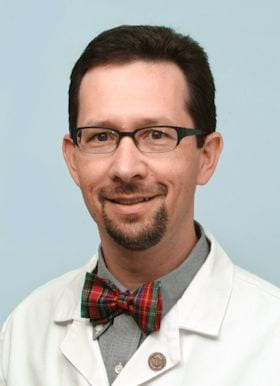
Thomas J. Baranski, MD, PhD (he/him/his)
Co-Director, WU Transgender Center | Professor of Medicine and Developmental Biology
- Phone: 314-362-3500
- Fax: 314-747-3963
- Email: baranski@nospam.wustl.edu
Dr. Baranski is Professor of Medicine and Developmental Biology. He received his MD/PhD from Washington University and completed residency and fellowship training at UC-San Francisco. He returned to join the faculty in the Division of Endocrinology, Metabolism, and Lipid Research. He is Program Director of the Endocrinology fellowship training program and Director of the Office of Training Grants. He is also the Co-Director of the Adult Transgender Center. Dr. Baranski was elected to the American Society of Clinical Investigators and a Distinguished Alumni Scholarship was established in his name by the Washington University Medical Center Alumni Association.
Research Interests
Mechanisms of diet-induced insulin resistance: As an endocrinologist, Dr. Baranski been interested in how glucose might be toxic to cells and lead to complications of diabetes such as neuropathy, retinopathy, and nephropathy. In collaboration with Dr. Ross Cagan, he created a model for diet-induced insulin resistance in Drosophila melanogaster. Using this model, they discovered high-sugar diets lead to phenotypes consistent with insulin resistance and the ability to tolerate these effects is directly related to the genetically determined capacity to store fat. In addition, they discovered in the setting of insulin resistance induced by high sugar diets, tumors created in Drosophila melanogaster become more insulin sensitive resulting in massive proliferation and metastasis of the tumors.
Mechanisms of gender-affirming hormone therapy in transgender medicine: As Co-director of the Adult Transgender Medicine Center at Washington University, Dr. Baranski has been interested in understanding the safety and efficacy of gender-affirming hormone therapy in transgender individuals and its effects on neurocognitive function. With colleagues in the Transgender Center, he has performed the first randomized controlled trial in transgender women. These studies demonstrated transdermal estradiol suppresses endogenous testosterone production at far lower doses than sublingual estradiol and there was no difference between once or twice daily dosing of the sublingual estradiol.